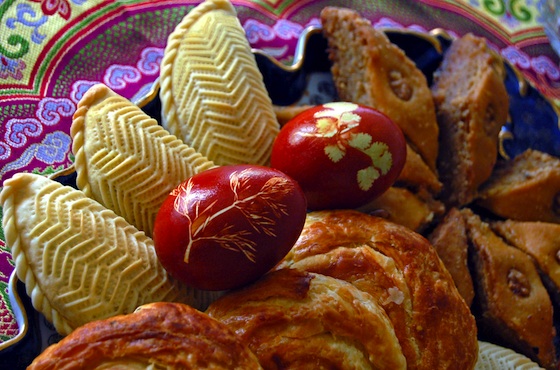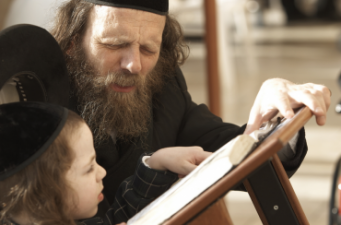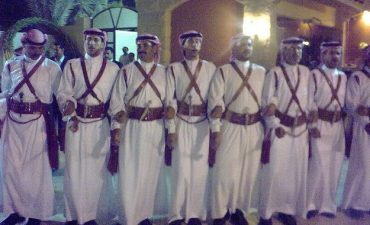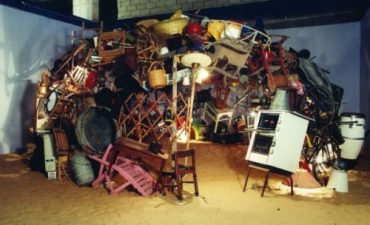 Goldfish have made up a small part of the Iranian New Year festivities for thousands of years, but some activists want this practice to end.
Goldfish have made up a small part of the Iranian New Year festivities for thousands of years, but some activists want this practice to end.
A longstanding Zoroastrian tradition, the Iranian New Year known as Nowruz is a time for spring cleaning, visiting friends, banishing the old, and preparing for the new. Beginning at the exact moment that the sun lies over the equator on the spring equinox, when light is spread evenly across the southern and northern hemispheres, this rich 12 day celebration is thought to have been invented by Zoroaster himself and is shared by nationals whose territories were at one time under control of the Persian empire. Like Israelis who celebrate Purim, which historians believe may have been adapted from Nowruz, Iranians observe numerous food and activity rituals, one of which has come under constant fire from local activists: the placement of goldfish on the Haft Sīn.
Promoting peace and goodwill through tradition
Before I say too much more about the goldfish, it’s important to underscore the positive side of a tradition that has been practiced for roughly 3,000 years and which in 2009 was officially registered on the UNESCO List of the Intangible Cultural Heritage of Humanity.
In 2010, the United Nations General Assembly recognized March 21 as the International Day of Nowruz, describing it as a spring festival of Persian origin which world countries should draw on to promote peace and goodwill. And it’s easy to see why.
When I was 15, my father sent me to stay with relatives in Iran for several months. It was a heady time, but one night stands out very clearly: the evening that my cousin took me to experience Chahārshanbe Suri. Also known as the festival of the fire, this ritual occurs on the night before the last Wednesday of the year.
Iranian families go into the street and build mini bonfires that people then jump over while singing lyrics that translate directly as:”My yellowness is yours, your redness is mine.” A celebration of the victory of light over darkness, the fire essentially absorbs all that is pale and weak and passes on strength and color.
Light defeats darkness
Adding to this sense of renewed strength, Iranians give their homes a thorough spring clean in the days leading up to Nowruz. They even buy themselves at least one new outfit so that they too feel fresh and rejuvenated. Visiting friends and families for 30 minute intervals is also an important aspect of the new year, and nuts, dried and fresh fruit, and other special foods are kept at hand for guests.
But for the first night, families join at their dining room table and exchange gifts at the exact moment of the equinox which is calculated every year. This gathering takes place near the Haft Sīn – a table decorated with seven foods or items starting with the Persian letter S that have some kind of symbolic meaning.
What is placed on the Haft Sīn varies from family to family, and certainly from country to country, but here are some of the foods that are commonly used (courtesy of wikipedia):
- Sabzeh: wheat, barley or lentil sprouts growing in a dish – symbolizing rebirth
- Samanu: a sweet pudding made from wheat germ – symbolizing affluence
- Senjed: the dried fruit of the oleaster tree – symbolizing love
- Sīr: garlic – symbolizing medicine
- Sīb: apples – symbolizing beauty and health
- Somaq: sumac berries – symbolizing (the color of) sunrise
- Serkeh: vinegar – symbolizing age and patience.
Goldfish
Missing from this list of items incorporated into the Haft Sīn are goldfish, which at one point along the tradition’s evolution symbolized animals and are frequently seen in Iranian households during Nowruz. According to Global Voices Online, the Iranian blogger Nasim Saba urged her fellows not to purchase goldfish:
In the last few years animal rights activists have launched online campaigns to discourage people from buying goldfish to save this beautiful animal. Every year their campaign become more successful. As people shop for the new year celebration, goldfish reappear in shops. Campaigners began to boycott this deadly trade. Goldfish are not an Iranian tradition, it comes from a Chinese tradition. Five millon goldfish die in Iran each year during Nowruz period.
We’re not certain about the numbers or how many families consider goldfish to be an integral part of their Haft Sīn, but another Iranian blogger disagrees that purchasing them should be boycotted.
Global Voices Online quotes a writer from Greenblog:
We should not boycott buying goldfish. Instead [of] creating an environment hostile to animals we should teach and educate people how to treat goldfish, from the transporters to the buyers… instead of all the negative propaganda against goldfish, we should improve monitoring of goldfish suppliers… Influenced by the negative campaigns, some Iranians have replaced goldfish with turtles in recent years.
Tradition is tricky. So crucial to the continued identity of diverse cultures, rituals born thousands of years ago are sometimes ill-suited to evolving circumstances.
Even though it might have been perfectly acceptable for thousands of families to have a few goldfish in a bowl for Nowruz one hundred years ago, population explosion combined with a devastating loss of biodiversity over the last few decades has cast a spotlight on this one aspect of an otherwise soulful celebration that starts tomorrow.
Happy Nowruz everyone!
Image credits: Jumping goldfish and Nowruz sweets via Shutterstock.
More on Holidays in the Middle East:
Celebrate Purim With Friendly Purim Baskets
Celebrating Mehregan, the Persian Nature Festival of Autumn
Eid Al-Adha: Getting Close to Your Meat




